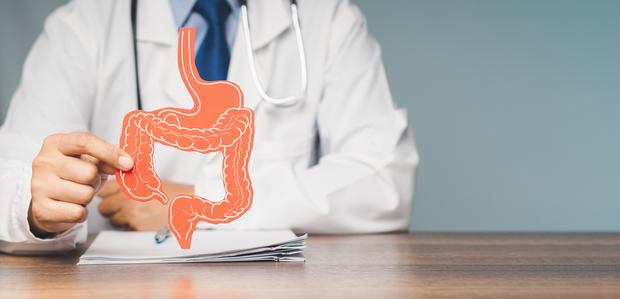Department of Medical Gastroenterology

BEST GASTROENTEROLOGIST HOSPITAL IN INDIA
Gastroenterology is a speciality in medicine that deals with the diseases and conditions of the Gastrointestinal Systems. Gleneagles Hospitals presents to you a team of eminent Gastroenterologists trained from top institutions with many years of experience in the field of Gastroenterology. The group of doctors and technicians are well-trained in their area of work and provide the best service to all the patients experiencing chronic and acute disorders of the Gastrointestinal tract.
The Institute of Advanced Gastroenterology & Therapeutic Endoscopy at Gleneagles Hospitals involves diverse specialities in the evaluation and treatment of Digestive Diseases. Patients will also be privy to a critical multidisciplinary team of Medical Gastroenterologists and specialist surgeons to ensure an inclusive solution to all Gastroenterological problems.
The hospitals have a good infrastructure with a team of well-trained professionals who perform various tests related to Gastroenterology. Senior doctors train the staff and provide the best service to the patients. Treatment here is specialised and covers all conditions of the Gastrointestinal tract, helping in the early detection and prevention of chronic conditions. Various Gastrointestinal diseases are taken care of at the Gleneagles Hospitals and some of them are the following:
- Mal-absorption Syndrome
- Gastrointestinal bleeding
- Irritable Bowel Diseases
- Constipation
- Diarrhoea
- Peptic Ulcer
BEST GASTROENTEROLOGY HOSPITAL IN INDIA FOR GASTROENTEROLOGY TREATMENT AND GASTRITIS TREATMENT OF STOMACH AILMENTS
Advanced facilities for Gastric conditions with excellent diagnosis and affordable cost of Gastroenterology treatment in India
Gleneagles Hospitals India is the best Gastroenterology hospital in India offering the best treatment and care for all types of Gastroenterological Diseases. Helmed by the best Gastroenterologists in India, the hospital is recognized for its wide range of Gastroenterological surgeries & treatments. The best Gastroenterologist in India working with a dedicated team of nursing professional bring the best in Gastroenterology care.
Our Doctors
View all-

Dr Srinivas M
Consultant
MBBS, MRCP (UK), MRCP (LONDON)
-

Dr Meghraj Ingle
Director
MBBS, MD, DrNB Medical Gastroenterology
-

Dr G S Sameer Kumar
Consultant Gastroenterology
-

Dr Adarsh C K
HOD & Sr Consultant - Medical Gastroenterology, Hepatology & Advanced Endoscopy
MBBS, MD (Gen Medicine), DNB (Gastroenterology)
-

Dr Sivananda Reddy B
Consultant
MBBS, MD (Manipal), DM (Medical Gastroenterology)
BEST GASTROENTEROLOGY HOSPITAL IN INDIA FOR TREATMENT OF GASTRIC & STOMACH AILMENTS
Advanced facilities for Gastric conditions with excellent diagnosis and affordable cost of Gastroenterology treatment in India
Gleneagles Hospitals India is the best Gastroenterology hospital in India offering the best treatment and care for all types of Gastroenterological Diseases. Helmed by the best Gastroenterologists in India, the hospital is recognized for its wide range of Gastroenterological surgeries & treatments. The best Gastroenterologist in India working with a dedicated team of nursing professional bring the best in Gastroenterology care.
Why Choose Us
-
Patient Experience
Your care and comfort are our top priorities. We ensure that the patients are well informed prior to every step we take for their benefit and that their queries are effectively answered.
-
Latest Technologies
The Gleneagles Hospitals' team stays up to date on the advancements in medical procedures and technologies. Experience the Future Healthcare Technologies now at Gleneagles Hospitals.
-
Providing Quality Care
Strengthening lives through compassionate care, innovative therapies and relentless efforts. It reflects in the DNA of our passionate team of doctors and dedicated clinical staff.










